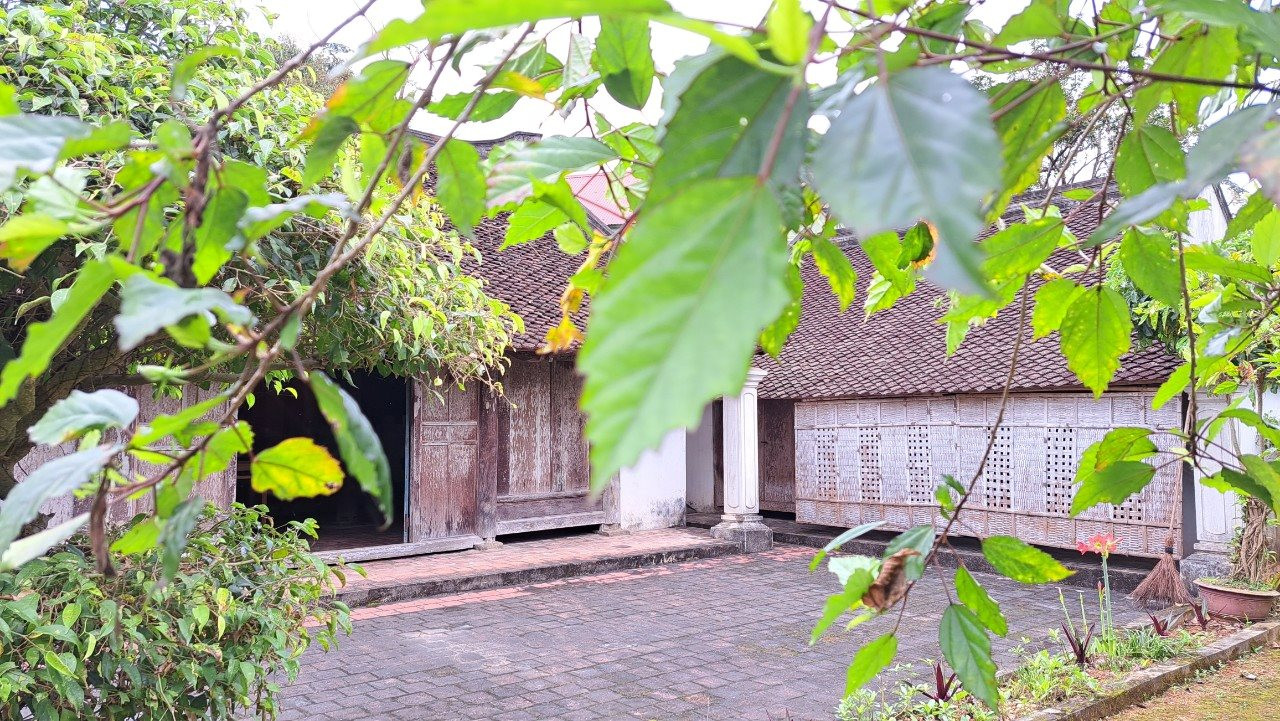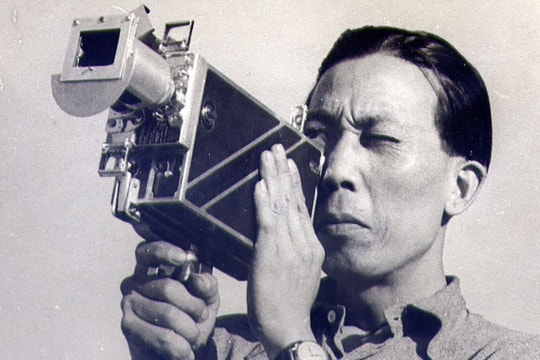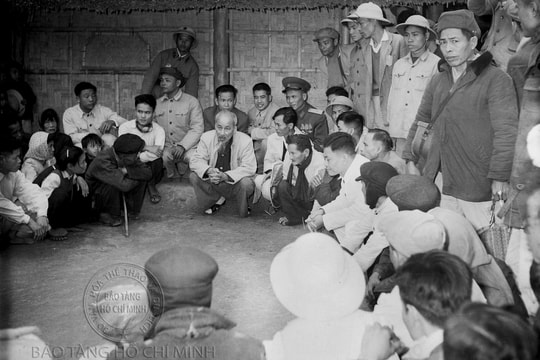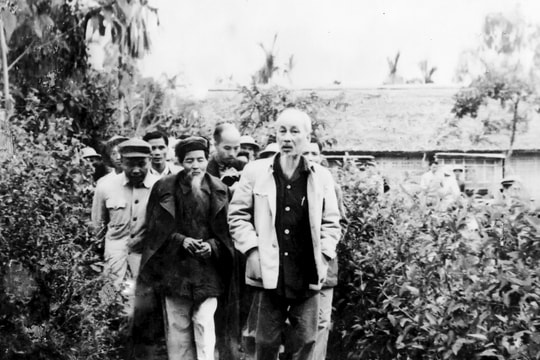Bachelor Vuong Thuc Quy - Uncle Ho's teacher in his youth
About 200 meters to the west of Mr. Pho Bang Nguyen Sinh Sac's house, there is a wooden house with a tiled roof, a very simple house of a very special person to beloved Uncle Ho, whom he mentioned with deep affection and respect during both his visits to his hometown in 1957 and 1961.

That is "Bachelor Vuong Thuc Quy - Uncle Ho's childhood teacher" - a famous teacher who was intelligent, studious, talented and patriotic.
Vuong Thuc Quy was born in the year of Nham Tuat (1862), the son of the scholar Vuong Thuc Mau, the leader of the Chung Nghia Binh team to fight against the French in response to King Ham Nghi's Can Vuong Proclamation. Vuong Thuc Quy passed the Bachelor's degree at the Tan Mao School of Arts (1891). He was an intelligent and perceptive person, and was ranked among the four tigers in Nam Dan in the late 19th and early 20th centuries, along with the famous name of Phan Boi Chau.
With a strong love for his country and hatred for the French colonialists and the Nguyen Dynasty, after passing the bachelor's degree, he did not take the exam again, nor did he become an official, but stayed home to teach and participate in national salvation activities. His house was a place where famous scholars and patriots of the time such as Phan Boi Chau, Dang Thai Than, Tran Van Luong, Nguyen Sinh Sac often came to discuss.
On July 14, 1901, Vuong Thuc Quy participated in a surprise attack on Nghe An citadel with Phan Boi Chau, Tran Hai... but the incident was exposed, thanks to the protection of Governor Dao Tan, he escaped.
In 1904, Vuong Thuc Quy participated in the founding of the Duy Tan Association, actively campaigned for financial donations and recruited young people for the Dong Du movement.
In early 1907, Vuong Thuc Quy built a New Books library and established the Dong Kinh Nghia Thuc group in Lang Sen.
In mid-1907, he set off for China to join forces with Phan Boi Chau, but unfortunately, when he arrived in Nam Dinh, he became seriously ill and had to return. On July 19, 1907, he passed away. Before he died, he only left a will: "If I have not yet avenged my father's revenge, this life is a waste."
After returning to live in Lang Sen (after July 1901), Mr. Nguyen Sinh Sac sent his two sons to study with Mr. Vuong. The class was located in front of the altar of Mr. Vuong Thuc Mau. The students were not many, most of them were brothers and friends with intelligence and strong will. The content of the lessons did not follow the "References" style but were often related to the current hot situation of the country:
"Patriotism never forgets one's ancestors."
Drinking water and natural resources
Private fruit
"The old shame is hard to forget"
Mean:
"Love the country but do not forget the ancestors
Drink water, remember the source.
When you eat the fruit, remember the person who planted the tree.
"The old humiliation is not forgotten".
Every day, before class, the teacher often lit incense to commemorate his respected father - Mr. Tu Tai Vuong Thuc Mau, a Can Vuong leader against the French in Kim Lien. One day, the teacher accidentally let the oil on the plate drip onto the lamp base. Taking advantage of that incident, the teacher immediately gave his students a couplet."Light the lamp and oil spills on the lamp stand"to probe the student's temperament. A quick-witted student immediately used the image of the incense stick the teacher had just burned to contrast.reason:"The incense burned and the wind blew it away."
As for Nguyen Tat Thanh, I would like to respond:"Riding a horse straight from Jin to Tang". The teacher praised both sentences, but with the sentence of student Nguyen Tat Thanh, the teacher thought that the couplet was more free, had more meaning, and was not constrained by the literal meaning of each word. The king and the emperor here both have 2 meanings ("king" means to flow, also means King; "de" means lamp base, also means Emperor. "Tan" means to advance, also means the Jin Dynasty; "Duong" means the road, also means the Tang Dynasty). The Jin Dynasty had just established the King, while the Tang Dynasty had established the Emperor. The couplet was not only correct in meaning, words, and profound meaning, but also showed the spirit of this 12-year-old youth.
During his time studying here, Nguyen Tat Thanh was trusted and had high expectations from his teacher. It was his teacher who created conditions for Nguyen Tat Thanh to meet patriotic Confucian scholars, including Phan Boi Chau - a famous patriotic scholar in the late 19th and early 20th centuries.
It can be said that this is a good cultural and ideological environment to help nurture talent and determination, creating conditions for the boy Nguyen Sinh Cung - Nguyen Tat Thanh to develop comprehensively and shoulder the responsibility of the country.





